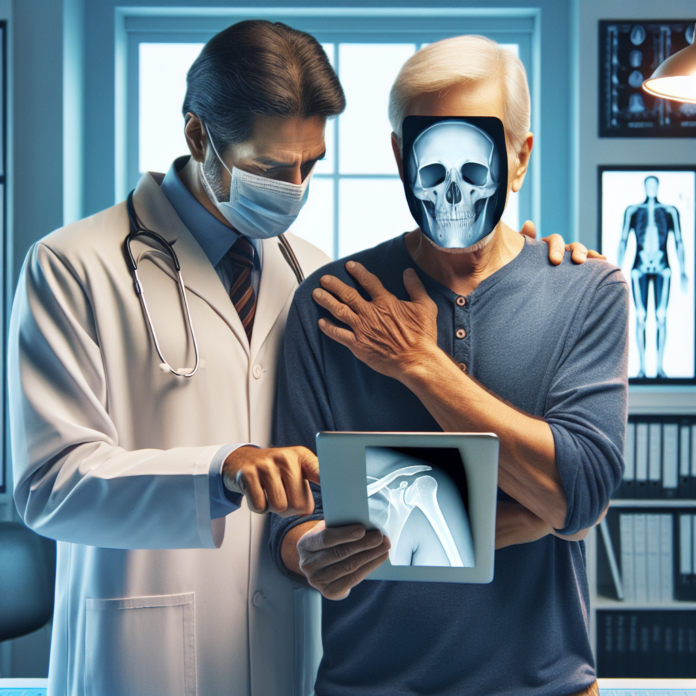Following shoulder surgery, many patients may notice a clicking or popping sound in their joint, leading to concern and questions about their recovery process. In this blog, we delve deeper into this phenomenon, guided by the expert insights of Dr. David Guyer, a triple board-certified orthopedic surgeon and sports medicine specialist. Dr. Guyer addresses common concerns regarding post-surgical sounds and sensations, explaining how they may arise from factors such as inflammation, changes in joint mechanics, or residual stiffness. While these noises can be unsettling, they often do not indicate a serious issue. Through this exploration, readers will gain a clearer understanding of what to expect during their recovery journey, helping them feel reassured in their path to regaining strength and mobility.
Understanding Post-Surgical Clicking
Post-operative recovery often comes with its own set of anxieties, especially when unexpected sensations, such as clicking or popping sounds in the shoulder, occur. If you’re fresh out of rotator cuff surgery and notice these auditory surprises, you might wonder if something is amiss. Rest assured, such sounds are often benign and part of the healing process. Let’s take a closer look at why these noises happen and what they might mean for your recovery.
Common Causes of Shoulder Clicking
Firstly, it’s important to understand that clicking and popping sounds in the shoulder can have several origins. While they might be alarming, they are not uncommon and usually not a cause for panic post-surgery. Below are some of the typical reasons these sounds may occur:
- Inflammation or Thickening of the Bursa: The bursa is a small sac filled with fluid that helps reduce friction between moving structures, such as tendons and bones. After surgery, inflammation can cause increased friction, leading to sounds like clicking or popping.
- Altered Mechanics: Surgery can temporarily alter how your shoulder moves. Post-operative changes, stiffness, or swelling can lead to changes in the way your shoulder functions, which may produce audible sounds.
- Stiffness and Weakness: Recovery post-surgery involves a phase where stiffness is present, and the muscles surrounding the shoulder are not yet at full strength. During movement, the shoulder might not glide as smoothly, creating noises.
When to Seek Further Evaluation
Despite these common causes of clicking sounds, it’s crucial to note that if such sensations persist long-term or are accompanied by pain, it may be worth discussing with your healthcare provider. They can determine whether further evaluation or intervention is necessary.
Steps to Ease Your Concern
Here are some steps you can take if you’re experiencing clicking sounds post-surgery that may help ease your concern:
- Consistent Rehabilitation: Following your physical therapy regimen can help restore proper movement mechanics, reducing abnormal sounds.
- Monitor and Record: Keep track of when the clicking occurs. Is it during certain movements or under specific conditions? This information can be valuable for your therapist or doctor.
- Stay in Contact with Your Surgeon: Regular post-operative check-ups are essential. During these visits, discuss any concerns about noises or sensations to ensure your recovery is on track.
Understanding Joint Sounds in General
Moreover, understanding the general context of joint sounds can also provide peace of mind. Clicking or popping often arises in joints, such as knees and shoulders, even in individuals who have not undergone surgery. In most cases, they are linked to benign factors like the movement of ligaments, or the release of gases from the synovial fluid that lubricates joints.
Resources for Further Support
For those dealing with arthritis or longer-term mobility issues, Dr. Guyer offers resources to explore non-surgical solutions. His e-book, “The Arthritis Solution,” is available for free and can offer insights into managing joint health effectively.
Conclusion
In conclusion, while the clicking and popping sounds following shoulder surgery might be disconcerting, they are generally not indicative of a serious problem. Instead, they are often a temporary part of the healing process. Remember to follow your post-operative care instructions and maintain open communication with your healthcare providers. Your road to recovery is just that—a journey, and with attentive care and patience, you’ll be back to your optimal performance in due time.
Should you have additional concerns about your recovery, consider reaching out to your orthopedic surgeon or pursuing educational resources like those offered by Dr. Guyer to support your journey to recovery and optimal joint health.
